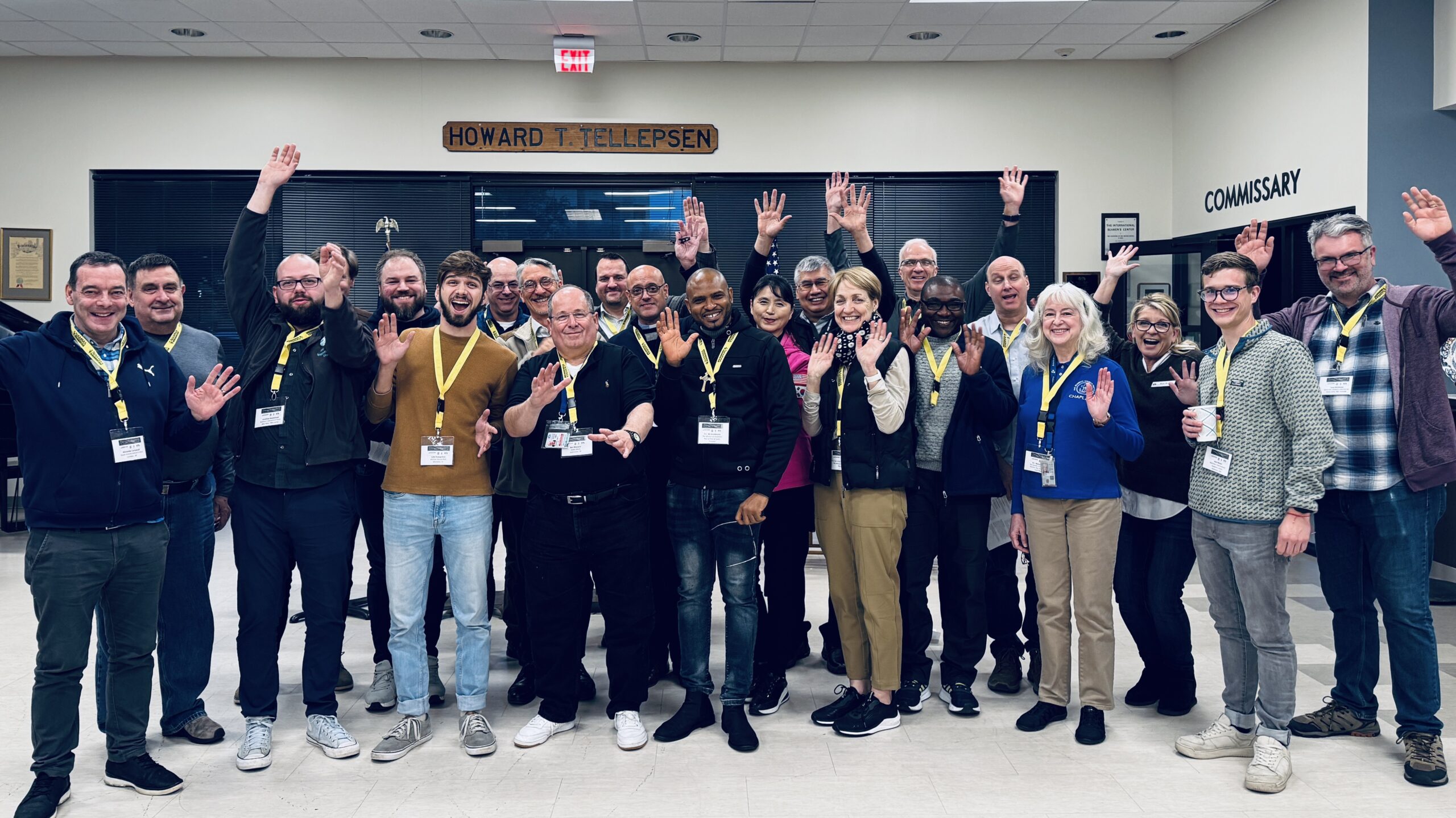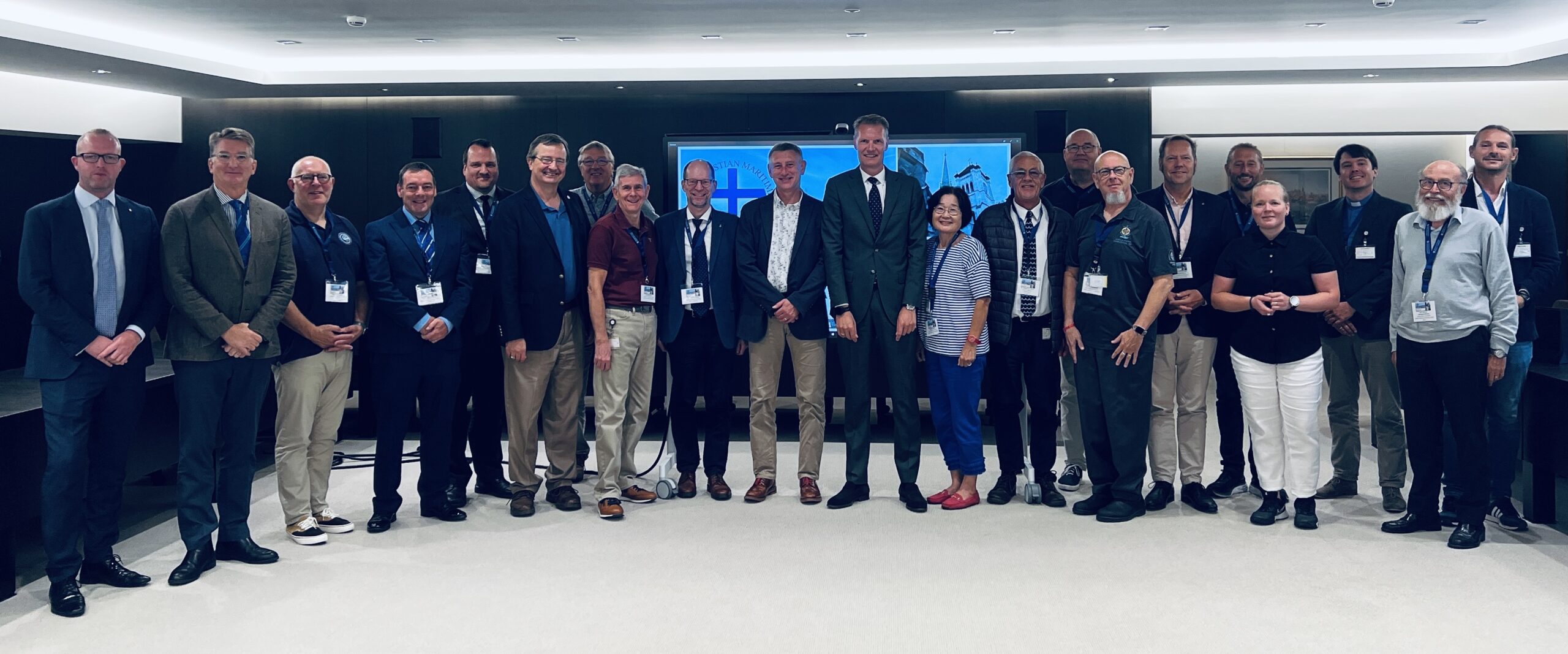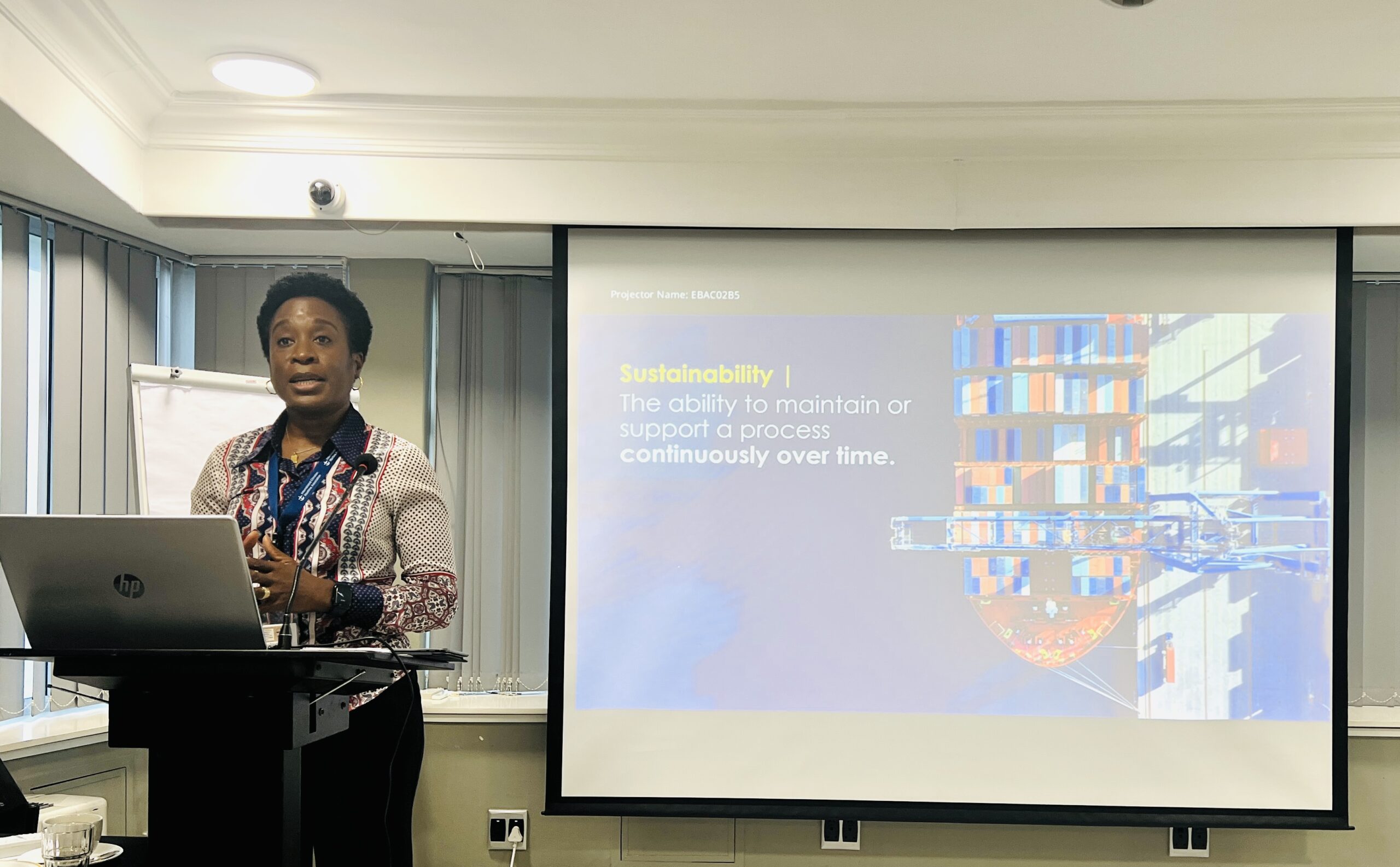The Houston School’s 2020 Session
A weeklong course on maritime ministry has once again been hosted by the Houston International Seafarers’ Center (HISC) and NAMMA with the endorsement of AOS United States and ICMA. Instructors taught on a range of topics, some focused more on connecting with seafarers, others on the organizational aspects of seafarers’ ministry, and others on religious, legal, and historical topics. Students got chances to learn, and, as importantly, to make connections: they quickly became their own miniature network of friends, stretching from across the coasts and lakeshores of North America to as far afield as Lagos, Nigeria, Felixstowe, the United Kingdom, and Mumbai, India. Our hope and theirs is that, through these connections, they learn from and teach each other, and we hope in years to come to ourselves to hear back from them at future NAMMA gatherings.
The ‘Houston School’ is a long-standing program for teaching and reflecting on ministry to seafarers, taught by experienced chaplains and other maritime experts. Many chaplains currently in NAMMA’s membership are graduates of the Houston School, including some of those now involved in the course itself. Originally taught for two weeks in-class, the course has now been made more accessible by reducing the in-class portion to one week and supplementing it with online lessons on NAMMA’s online learning platform, MARE Training, which has been developed with support of the TK Foundation.
Students came to this course with all kinds of motivations: some were new volunteers, hoping to learn more about how to do ship visiting well; some had experience advocating for seafarers in other capacities but wanted to better understand the religious and ministry components; one was a recently-hired centre director; another had been asked to recruit volunteers and wants to learn about what he is recruiting them to do. Some have been ministering to seafarers for years and were simply interested in comparing their approaches with others’. Whatever their experience level, all benefited from the opportunity to share perspectives and build relationships.
Addressing Challenges in Seafarers’ Ministry
At the beginning of the in-class course, students shared their greatest struggles with seafarers’ ministry: conversations across cultures, travelling long distances in large ports, keeping a ministry funded, and moments when it seems like seafarers don’t actually need what we’re offering them. Many were surprised to learn that about the different problems that their fellow students faced and were able to carry on their ministries in spite of. Students shared advice with each other in that opening session, and in the sessions that followed many of the lessons taught directly pertained to those original questions.
One example of course material addressing the difficulties shared by students came later on that day, with Apostleship of the Sea US Director Sr. Joanna Okereke’s presentation on cultural sensitivity and communication. She taught students about the differences between cultures, for instance individualism vs. collectivism and the appropriateness of humour, and the attitudes, skills, and knowledge needed to do intercultural communication well. After the lecture component, the students gathered into groups to discuss what steps they could take to improve their intercultural skills. Important themes that emerged during the discussion included the value of “doing one’s homework” when it came to the cultures of seafarers and listening carefully for what is important to the seafarers we talk with.
Another chance to work through the problems of seafarers’ ministry came with General Presbyter of New Covenant Lynn Hargrove’s sessions. Lynn began by sharing the doubts she had about a critical pastoral incident during her training, and then asked the class what they thought was good about what she had done, what was bad, and how they might have done differently. The group was affirming of Lynn, while also thoughtful in discerning some of the issues at play in her story. Then, she turned the question on the class: when have you had moments in your ministry when you didn’t know what to do? Students came forward with stories of serving alcohol to seafarers when they didn’t feel comfortable with it, seafarers who had been abandoned by their companies, and seafarers who had asked them for help finding prostitutes.
We heard expertise in these issues: a former bartender talked about the rules around serving alcohol commercially, and a lawyer talked about liability for seafarers’ centers. We also heard differences in each others’ perspectives: we worry about personally contributing to prostitution, about talking with seafarers about their marriage commitments, and about protecting pastoral relationships with seafarers. These differences were opportunities for us to prepare ourselves for difficult situations, change our approach, and think about how we might work with people we disagree with on them.
Houston School Quick Facts:
- Hosted by the Houston International Seafarers’ Center in Houston, Texas
- Coordinated by NAMMA with endorsement of AOS United States and International Christian Maritime Association
- $500 USD, inclusive of room and most meals for out-of-town students and $275 USD for local students
- One week in-class + online lessons via maretraining.com system
- 15 students, all backgrounds welcome
- Daily ecumenical worship
Worship Together and Seafarers’ Ministry in Religious Life
As with every NAMMA gathering, every day featured a worship service with readings, prayers, and a homily given by an experienced seafarers’ chaplain. As homilies, these were in themselves good testimonies to the love of God expressed in seafarers’ ministry, but they were also useful instruction in advocating for seafarers’ ministries to congregations and potential donors – Fr. Jan Kubisa of the HISC related an apparent miracle witnessed by seafarers that testified to the mental and physical dangers of life at sea, and Karen Parsons of the Galveston Seafarers’ Center shared about a time when a seafarer demonstrated to her the lows of isolation and the highs of service to others. When seafarers’ centers go looking for volunteers and sources of funding, their best resources are often churches, but it is not always so easy to find the right words to say in front of them – these homilies and other moving stories are blueprints for testifying to seafarers’ ministry.
On the second day, NAMMA’s Kevin Walker gave students another opportunity to think about preaching on ministry to seafarers during a lecture on the spiritual significance of the sea in Scripture and ancient religion. After going through examples of the sea as a manifestation of God’s power in the Old and New Testaments and comparing the Biblical accounts with Mesopotamian and Greek myths, Kevin presented the students with Bible verses discussing the sea and asked them to consider how they might interpret them through a seafarers’ welfare perspective. In exercises like these and in invitations to pray for seafarers, the students practiced connecting seafarers’ ministry with their own spiritual convictions and those of others.
Things to be Thankful for
The 2020 Houston School was enriched by many more lessons and activities: lectures on active listening by Denice Foose and Ted Smith, corporate efforts for seafarers’ welfare by Anuj Chopra, the MLC, 2006 by seafarers’ rights advocate and amateur svedomycologist Douglas Stevenson, and on collaboration by representatives from the Coast Guard and Maritime Association. There were planned excursions, including trips to the Norwegian Seamen’s Church in Houston, the Seafarers’ International Union, steak dinner with the Houston Propeller Club, and informal gatherings like dinner at local restaurants and evening worship at local churches. The hospitality of the Houston port and church communities has always been excellent, and this year in no way broke from that pattern. The Houston International Seafarers’ Center and its staff are particularly to be thanked, especially chaplain Tom Edwards, executive director Dana Blume, and perennial school volunteer and friend of the HISC, chaplain Marshal Bundren.
As this new generation of maritime ministers enters our ports and seafarers’ centers, we as NAMMA look forward to seeing the fruits of their work, and we look forward also to continuing to partner with the HISC in equipping more people for seafarers’ welfare work in future.





